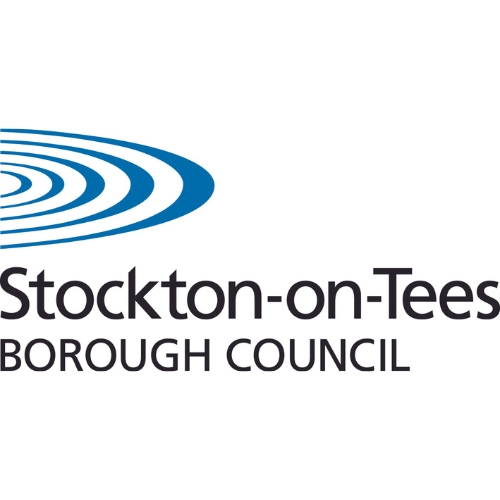Some of our Partners:
Overview
The Assistant Accountant Apprenticeship (Level 3) is equivalent to two A-levels, and will take approximately 15-21 months to complete. The qualification is an ideal progression route into the accounting industry. Typical job roles associated with the programme include Assistant Accountant, Accounting Technician, Accounts Clerk, Bookkeeper and many more.
There is no standardised eligibility criteria for this apprenticeship. This means the individual employer will decide if a candidate is suitable.
Start date: Flexible
Typical duration: 15 – 21 Months (depending on hours worked each week)
Location: Nationwide (England)
Assistant Accountant Apprenticeship Features
Throughout the apprenticeship you’ll gain the skills, knowledge and behaviours needed for your chosen role and industry. To help you with this, you can expect to study the following subject areas:
- Financial Accounting and Reporting
- Management Accounting
- IT Systems and Processes
- Analysis
- Ethical Standards
You will also complete a Vendor or Professional Qualification alongside the apprenticeship, which is chosen by the employer to be most relevant to the job role. This will either be the AAT Advanced Diploma in Accounting or the AAT Level 3 Diploma in Accounting.
During your apprenticeship you will gather evidence as part of a portfolio to demonstrate your knowledge, skills and behaviours.
This will include:
- Completion of workbooks and knowledge questions.
- Virtual observations, carried out in line with data protection and GDPR requirements.
- Recorded professional discussions to capture reflective learning and understanding.
- Witness testimonies from managers to verify on-the-job performance and competence.
Forget about lugging around all your work. The online iLearner e-portfolio system means all your work can be uploaded directly to your account and accessed wherever you go.
The system is easy to navigate and full guidance will be provided through our iLearner handbook and from your tutor through one-to-one support.

Off-the-Job Training
Off-the-job (OTJ) training is a mandatory part of all apprenticeships funded by the Department for Education. Each apprenticeship standard has a set number of OTJ training hours that must be planned and completed. If you have no prior learning and your apprenticeship duration and funding have not been reduced, you are expected to complete the full number of OTJ hours as specified in the standard.
There is no requirement to increase OTJ hours for part-time apprentices. This includes those working less than 30 hours per week or on zero-hour contracts. The training must be realistic and aligned with the standard’s set requirements.
OTJ training takes place during your normal working hours and involves learning activities that are directly related to your apprenticeship. This could include one-to-one sessions with a tutor, preparing for assessments, role-playing workplace scenarios, attending training sessions or webinars on key industry topics and individual study time to complete coursework.
To check the minimum required hours for your apprenticeship, please use the link below:
View Apprenticeship Hours Requirements
Functional Skills
Functional Skills maths and English are an essential part of many apprenticeship courses. Apprentices aged 16-18 who have not previously achieved GCSE Grade 4/C (or an equivalent qualification) are required to complete and achieve their Functional Skills qualifications. However, for adult apprentices (19+), Functional Skills are now optional and not a mandatory requirement for completing an apprenticeship. The decision is for the employer and the learner to decide whether to undertake these qualifications.
Benefits of completing Functional Skills:
- Some higher-level roles and further qualifications require maths and English at Level 1 or 2. Completing Functional Skills can open doors to promotions and further education.
- Strong communication and numerical skills are essential in most job roles, helping with tasks like report writing, budgeting, and problem-solving.
- Functional Skills help with real-life tasks, such as managing finances, understanding contracts, and effective communication in personal and professional settings.
- Functional Skills are designed to be practical and flexible, meaning they can be tailored to fit around your apprenticeship work.

The End-Point Assessment
As part of your Assistant Accountant Apprenticeship, an End-Point Assessment will be completed to demonstrate your development and growth. You can achieve either a Pass, Merit or Distinction based on your final grade.
Showcase Portfolio
During your apprenticeship you will gather evidence as part of a portfolio to further show your learning. This will cover topics such as essential for the industry and job role. Though this is not directly assessed, your portfolio is essential for completing other parts of the EPA.
Forget about lugging around all your work. The online iLearner portfolio system means all your work can be uploaded directly to your account and accessed wherever you go. The system is easy to navigate. Though, full guidance will be provided through our iLearner handbook and from your tutor through one-to-one support.
Multiple-Choice Assessment
You will complete a multiple-choice test. It will be open book, meaning you can have access to some books or reference materials. In the test you can have:
- Pens, pencils, erasers.
- Scientific or accountancy calculator (must not emit audible tones or function as any other digital device).
In the test you cannot have:
- Access to the internet.
- Technological, web-enabled potential sources of information.
- Devices including, but not limited to, mobile phones, iPods, MP3/4 players or data-storing smart watches.
No other equipment is allowed.
The test will have 40 multiple choice questions over 4 different themes. You will have 150 minutes to complete it.
Professional Discussion
You will conduct a Professional Discussion with the independent assessor to establish further understanding of your knowledge and skills within the Accounting industry. It will last 60-70 minutes, and they will ask you at least 10 questions. This may cover a number of scenarios you may have encountered in your job role, along with questions relating to the development of skills.

Go Further
Once you’ve completed your Assistant Accountant Apprenticeship, there are several progression routes available, dependent on your industry and job role:
You can also progress into a variety of job roles, such as Assistant Cashier, Finance Assistant, Purchase Ledger Clerk and many more!
Contact us for further information!
Call us on 01246 278931, email info@apprenticeteam.co.uk or fill in the contact form below to check availability and for further advice about the next steps.
Our team will be happy to advise you on additional programmes we provide and can help point you in the right direction for any learning requirement not delivered by Apprentice Team Ltd.




















